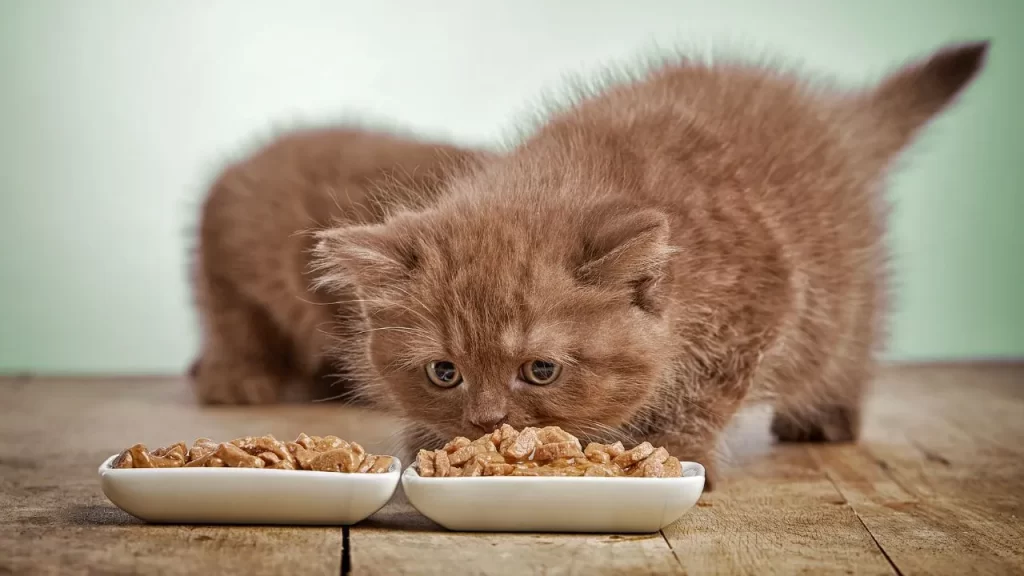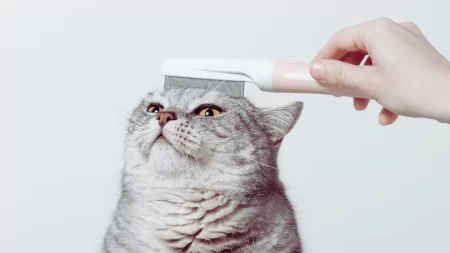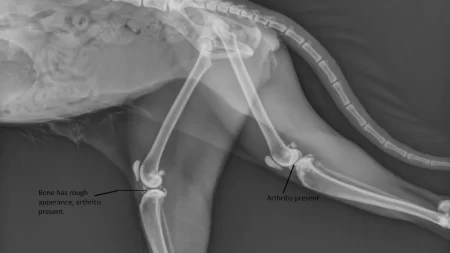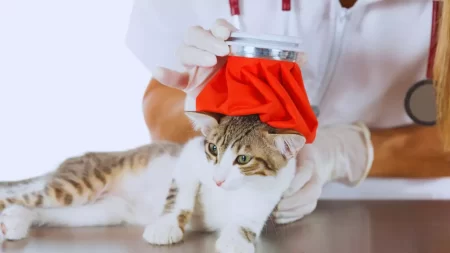Cats are obligate carnivores, which means that they rely on nutrients found only in animal products.
They need a balanced and complete diet that provides them with adequate amounts of protein, fat, carbohydrates, vitamins, minerals, fatty acids, and amino acids.
However, some cats may have health conditions that require special diets to manage their symptoms and improve their quality of life.
In this article, we will explore what special diets are, what types of special diets are available for cats, what common health conditions in cats may benefit from special diets, and some practical tips for implementing special diets for your cat.
Understanding Special Diets for Cats with Health Conditions
Special diets for cats are formulated to provide nutritional support for cats suffering from various medical conditions.
These diets may have different ingredients, nutrient levels, or textures than regular cat foods to meet the specific needs of the cat.
For example, some special diets may have lower or higher amounts of protein, fat, carbohydrates, sodium, phosphorus, or other nutrients to help regulate the cat’s metabolism, organ function, or body weight.
Some special diets may also have added supplements or additives to enhance the cat’s immune system, digestive health, or skin and coat condition.
Special diets for cats are not meant to replace veterinary treatment, but rather to complement it and help the cat cope better with their condition.
Special diets should always be prescribed by a veterinarian who can assess the cat’s individual needs and monitor their response to the diet.
Special diets should not be given to healthy cats or cats with different health conditions than the one the diet is intended for, as this may cause nutritional imbalances or adverse effects.
Types of Special Diets for Cats
There are three main types of special diets for cats: prescription diets from your vet, homemade diets and recipes, and commercial diets for specific health conditions.
Prescription Diets from Your Vet
Prescription diets are specially formulated cat foods that are only available from your veterinarian or through a veterinary prescription.
These diets are designed to meet the specific nutritional requirements of cats with certain health conditions and are backed by scientific research and clinical trials.
Prescription diets are usually more expensive than regular cat foods, but they may offer more benefits and better results for your cat’s health.
Some examples of prescription diets for cats include:
- Hill’s® Prescription Diet® k/d®: This diet is designed for cats with chronic kidney disease (CKD), which affects their ability to filter waste products from their blood and maintain fluid and electrolyte balance. This diet has reduced levels of protein, phosphorus, and sodium to help slow down the progression of kidney damage and reduce the workload on the kidneys. It also has increased levels of omega-3 fatty acids, antioxidants, and B vitamins to support kidney function and overall health.
- Royal Canin® Renal Support: This diet is another option for cats with CKD that offers different flavors and textures to suit your cat’s preferences. It has similar nutrient levels as Hill’s® Prescription Diet® k/d® but also has added potassium citrate to help prevent metabolic acidosis, a common complication of CKD1.
- Purina® ProPlan® Veterinary Diet NF Kidney Function®: This diet is also formulated for cats with CKD and has similar nutrient levels as Hill’s® Prescription Diet® k/d®, but also has added prebiotics to promote digestive health and immune system function.
- Rayne Clinical Nutrition™ Adult Health-RSS™: This diet is designed for cats with urinary tract issues such as urinary stones or crystals, which can cause painful urination, blood in urine, or urinary blockage. This diet has reduced levels of magnesium, calcium, phosphorus, and oxalate to help prevent the formation of urinary stones or crystals. It also has increased levels of moisture and sodium to encourage water intake and urine dilution.
Homemade Diets and Recipes
Homemade diets are cat foods that you prepare yourself using fresh ingredients such as meat, fish, eggs, vegetables, grains, supplements, etc.
Homemade diets can offer more variety and control over what your cat eats and can be tailored to your cat’s specific needs and preferences.
However, homemade diets can also be challenging to prepare correctly and safely.
You need to follow a recipe that is balanced and complete for your cat’s condition and life stage.
You also need to ensure that the ingredients are fresh, clean, properly cooked or raw (depending on the recipe), and free of contaminants or toxins.
Some examples of homemade diets and recipes for cats include:
Chicken and Vegetable Stew
Ingredients:
- 1 pound boneless, skinless chicken breasts, cut into bite-sized pieces
- 1 onion, chopped
- 1 carrot, chopped
- 1 celery stalk, chopped
- 1/2 cup chicken broth
- 1/4 cup water
- 1 tablespoon olive oil
- 1/2 teaspoon salt
- 1/4 teaspoon black pepper
Instructions:
- In a large pot, heat the olive oil over medium heat.
- Add the chicken and cook until browned on all sides.
- Add the onion, carrot, celery, chicken broth, and water.
- Bring to a boil, then reduce heat and simmer for 20 minutes, or until the chicken is cooked through.
- Remove from heat and let cool slightly.
- Shred the chicken and add it back to the pot.
- Season with salt and pepper to taste.
- Serve warm.
Beef and Rice Patties
Ingredients:
- 1 pound ground beef
- 1 cup cooked rice
- 1/2 cup grated carrots
- 1/4 cup chopped green beans
- 1 egg, beaten
- 1/2 teaspoon salt
- 1/4 teaspoon black pepper
Instructions:
- Preheat oven to 350 degrees F (175 degrees C).
- In a large bowl, combine all ingredients.
- Mix well.
- Form the mixture into small patties.
- Place the patties on a baking sheet.
- Bake for 20-25 minutes, or until cooked through.
- Serve warm.
Salmon and Tuna Pate
Ingredients:
- 1 can (12 ounces) salmon, drained
- 1 can (12 ounces) tuna, drained
- 1/2 cup cooked brown rice
- 1/4 cup chopped celery
- 1/4 cup chopped onion
- 1 tablespoon olive oil
- 1/2 teaspoon salt
- 1/4 teaspoon black pepper
Instructions:
- In a food processor, combine all ingredients.
- Process until smooth.
- Serve warm or cold.
These are just a few examples of homemade diets and recipes for cats. It is important to talk to your veterinarian before making any changes to your cat’s diet, as they can help you determine which diet is best for your cat’s individual needs.
Commercial Diets for Specific Health Conditions
Commercial diets are cat foods that are available in pet stores or online retailers that are formulated for cats with specific health conditions.
These diets may not require a veterinary prescription, but they should still be approved by your veterinarian before feeding them to your cat.
Commercial diets may be cheaper and more convenient than prescription diets or homemade diets, but they may also have lower quality ingredients, more additives or fillers, or less palatability than other options.
Some examples of commercial diets for specific health conditions include:
- Blue Buffalo Natural Veterinary Diet K+M Kidney + Mobility Support: This diet is designed for cats with CKD and mobility issues such as arthritis or joint pain. It has reduced levels of protein, phosphorus, and sodium to support kidney function and increased levels of omega-3 fatty acids, glucosamine, and chondroitin to support joint health.
- Wellness CORE Grain-Free Indoor Formula: This diet is designed for indoor cats who are prone to weight gain, hairballs, or urinary tract issues. It has reduced calories and fat to help maintain a healthy weight, increased fiber to help prevent hairballs, and controlled mineral levels to help prevent urinary crystals or stones.
- Natural Balance L.I.D. Limited Ingredient Diets Green Pea & Duck Formula: This diet is designed for cats with food allergies or sensitivities who need a limited ingredient diet to avoid potential allergens or irritants. It has only one animal protein source (duck) and one carbohydrate source (green peas) to minimize the risk of adverse reactions. It also has added taurine, vitamins, and minerals to ensure complete and balanced nutrition.
Common Health Conditions in Cats and Appropriate Diets
Cats can suffer from various health conditions that may require special diets to manage their symptoms and improve their quality of life.
Here are some of the most common health conditions in cats and the appropriate diets for them:
Diabetes and Low Carbohydrate Diets
Diabetes is a condition that affects the cat’s ability to produce or use insulin, a hormone that regulates blood sugar levels.
Cats with diabetes may have high blood sugar levels (hyperglycemia), which can cause symptoms such as increased thirst, urination, appetite, weight loss, lethargy, weakness, vomiting, dehydration, or ketoacidosis (a life-threatening complication).
Diabetes can be caused by genetic factors obesity, pancreatitis, steroid use, or other factors.
Cats with diabetes may benefit from a low carbohydrate diet that can help regulate their blood sugar levels and reduce their insulin needs.
Low carbohydrate diets are typically high in protein and moderate in fat, which can also help maintain muscle mass and prevent weight loss.
Wet, canned, or raw foods are preferable to dry foods, which may contain more carbohydrates.
Some examples of low-carbohydrate foods are freeze-dried chicken, beef, salmon, tuna, and liver.
Some commercial diets that are low in carbohydrates are Purina Pro Plan Veterinary Diets DM Dietetic Management Formula, Tiki Cat Puka Luau Succulent Chicken in Chicken Consomme Grain-Free Canned Food, and Taste of the Wild Canyon River Grain-Free Canned Cat Food.
Kidney Disease and Low Protein Diets
Kidney disease is a condition that affects the cat’s ability to filter waste products from their blood and maintain fluid and electrolyte balance.
Cats with kidney disease may have high blood urea nitrogen (BUN) and creatinine levels, which can cause symptoms such as increased thirst, urination, appetite loss, weight loss, vomiting, dehydration, anemia, or uremia (a toxic condition caused by excess urea).
Kidney disease can be caused by genetic factors, infections, toxins, or other factors.
Cats with kidney disease may benefit from a low-protein diet that can help slow down the progression of kidney damage and reduce the workload on the kidneys.
Low protein diets are typically low in phosphorus and sodium as well, which can help prevent mineral deposits in the kidneys and control blood pressure.
Low protein diets may also have increased levels of omega-3 fatty acids, antioxidants, B vitamins, potassium citrate, and fiber to support kidney function and overall health.
Wet foods are preferable to dry foods, as they can help increase water intake and prevent dehydration.
Some examples of low-protein foods are cooked white rice, boiled eggs, cottage cheese, and cooked vegetables.
Some commercial diets that are low in protein are Hill’s Prescription Diet k/d Kidney Care Chicken & Vegetable Stew Canned Cat Food, Royal Canin Veterinary Diet Renal Support D Morsels in Gravy Canned Cat Food, and Purina Pro Plan Veterinary Diets NF Kidney Function Formula Canned Cat Food.
Urinary Tract Issues and Specialized Diets
Urinary tract issues are conditions that affect the cat’s lower urinary tract (bladder and urethra).
Cats with urinary tract issues may have urinary stones or crystals (uroliths), urinary tract infections (UTIs), or feline idiopathic cystitis (FIC), which is a stress-related inflammation of the bladder wall.
Cats with urinary tract issues may have symptoms such as painful urination, blood in urine, frequent urination, straining to urinate, or urinary blockage (a life-threatening emergency).
Urinary tract issues can be caused by genetic factors, diet, stress, or other factors. Cats with urinary tract issues may benefit from a specialized diet that can help prevent or dissolve urinary stones or crystals, reduce inflammation or infection, and promote urine dilution and acidification.
Specialized diets may have different levels of magnesium, calcium, phosphorus, oxalate, sodium, potassium citrate, and moisture depending on the type of urinary issue.
Some examples of specialized foods are cooked chicken breast, boiled eggs, canned tuna, and cranberries.
Some commercial diets that are specialized for urinary tract issues are Hill’s Prescription Diet c/d Multicare Urinary Care Stress Chicken and Stew Canned Cat Food, Royal Canin Veterinary Diet Urinary SO Moderate Calorie Morsels in Gravy Canned Cat Food, and Purina Pro Plan Focus Urinary Tract Health Formula Adult Dry Cat Food.
Weight Loss and Low-Calorie Diets
Weight loss is a condition that affects the cat’s body condition score (BCS), which is a measure of how much body fat a cat has.
Cats with weight loss may have a BCS of 1 to 3 on a scale of 1 to 9, where 1 is very thin and 9 is very obese.
Cats with weight loss may have symptoms such as reduced appetite, increased activity, vomiting, diarrhea, or signs of underlying diseases.
Weight loss can be caused by metabolic disorders, infections, cancer, dental problems, stress, or other factors.
Cats with weight loss may benefit from a low-calorie diet that can help them gain weight and restore their muscle mass and energy levels. Low-calorie diets are typically high in protein and fat and low in carbohydrates and fiber.
They may also have added vitamins and minerals to prevent deficiencies. Wet foods are preferable to dry foods, as they can help increase appetite and hydration.
Some examples of low-calorie foods are cooked chicken thigh, boiled beef liver, canned sardines, and cheese.
Some commercial diets that are low in calories are Hill’s Prescription Diet a/d Urgent Care with Chicken Canned Dog & Cat Food, Royal Canin Veterinary Diet Recovery RS Canned Dog & Cat Food, and Purina Pro Plan Veterinary Diets CN Critical Nutrition Formula Canned Dog & Cat Food.
Food Allergies and Limited Ingredient Diets
Food allergies are conditions that affect the cat’s immune system, which reacts to certain proteins or other substances in food as if they were harmful invaders.
Cats with food allergies may have symptoms such as itching, scratching, licking, hair loss, skin infections, ear infections, or gastrointestinal problems.
Food allergies can be caused by exposure to certain proteins or other substances in food that trigger an immune response.
Cats with food allergies may benefit from a limited ingredient diet that can help avoid potential allergens or irritants.
Limited ingredient diets have only one animal protein source and one carbohydrate source to minimize the risk of adverse reactions.
They may also have added taurine, vitamins, and minerals to ensure complete and balanced nutrition.
Wet or dry foods can be used, depending on the cat’s preference. Some examples of limited ingredient foods are duck and green peas, rabbit and oatmeal, and venison and potato.
Some commercial diets that are limited in ingredients are Natural Balance L.I.D. Limited Ingredient Diets Green Pea & Duck Formula Dry Cat Food, Instinct Limited Ingredient Diet Grain-Free Real Rabbit Recipe Natural Wet Canned Cat Food, and Blue Buffalo Basics Limited Ingredient Grain-Free Formula Turkey & Potato Recipe Adult Dry Cat Food.
Practical Tips for Implementing Special Diets
Implementing special diets for cats with health conditions can be challenging, but not impossible. Here are some practical tips to help you and your cat succeed:
- Consult with your veterinarian: Your veterinarian is your best source of information and guidance on what special diet is suitable for your cat’s condition and how to introduce it safely and effectively. Your veterinarian can also monitor your cat’s health and progress and adjust the diet or medication as needed.
- Gradually transition to a new food: Changing your cat’s food abruptly can cause digestive upset or food refusal. To avoid this, gradually transition your cat to the new food over a period of 7 to 10 days, by mixing increasing amounts of the new food with decreasing amounts of the old food until only the new food is offered.
- Monitor your cat’s health and progress: Keep track of your cat’s weight, appetite, water intake, urine output, stool quality, activity level, and behavior. Look for signs of improvement or worsening of your cat’s condition and report them to your veterinarian. Follow your veterinarian’s recommendations for regular check-ups and tests.
- Keep track of food intake and portion sizes: Measure your cat’s food intake carefully and follow the feeding guidelines on the food label or as instructed by your veterinarian. Avoid overfeeding or underfeeding your cat, as this can affect their health and weight. Use a measuring cup or a scale to ensure accuracy.
- Ensure adequate water intake: Water is essential for your cat’s health and hydration, especially if they have kidney disease, urinary tract issues, or diabetes. Provide fresh, clean water at all times and in multiple locations. Use a water fountain or a dripping faucet to encourage water intake. Add water or broth to wet food to increase moisture content.
Conclusion
Special diets for cats with health conditions can provide nutritional support and help manage their symptoms and improve their quality of life.
However, special diets should always be prescribed by a veterinarian who can assess the cat’s individual needs and monitor their response to the diet.
Special diets should not be given to healthy cats or cats with different health conditions than the one the diet is intended for, as this may cause nutritional imbalances or adverse effects.







